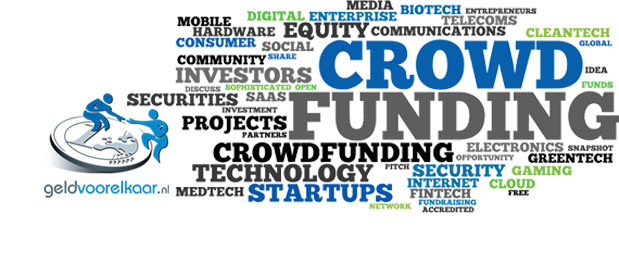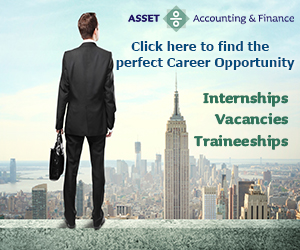First, could you tell us more about yourself, your study and your career?
I studied at the School of Agriculture, specializing in Agricultural Business. I always pictured myself being a farmer, but I soon I found out that it was not interesting at all. After graduating, I went in the army, and afterwards backpacking for a year. When I returned to the Netherlands, I had to go back to work and I pretty quickly ended up in the financial services industry. I worked at a number of large companies, and from this experience, we eventually started “Geldvoorelkaar”. Before that I was a bank manager at ING Bank. I was responsible for the running of one of the branches. The merger of ING and Postbank in 2009 was the reason for me to think about something new and then we came up with the idea of crowdfunding. We possess knowledge of the financial services industry as well in the conservative market as in the business market. We have actually tried to take the good things from that world with us and leave less good things behind. In 2009 we started with the idea of “Geldvoorelkaar” (Money For Each Other). In 2010 we started to build and in 2011 we went live.
Why did you start ”Geldvoorelkaar”?
The practical reason was that we did not have any jobs anymore. Martijn, my partner, also ran a private ING branch. I got to know him in the franchise association where we were in. In such a franchise association you get to know each other well. Together we started brainstorming. We had a few ideas on the table, from starting a nursery to clothing imports from China. We saw that crowdfunding in America and England was emerging fast, therefore we thought it was a good idea to bring crowdfunding to the Netherlands. On the one hand it was a coincidence, but on the other hand, it was not entirely misguided. We did have difficulties in 2010, because when we just started nobody knew about crowdfunding. It took a few years before it became popular and widely known.
What does “Geldvoorelkaar” exactly do?
“Geldvoorelkaar” is a kind of marketplace for money. We are trying to link the supply and demand of money, to each other, without going through a bank. A business owner or individual may submit a credit application to us. We will then assess whether it poses an acceptable risk and whether it is feasible. If it is approved it will be placed online and investors can subscribe to the project and invest their money in an idea of a self-employed person or entrepreneur. The big advantage for entrepreneurs is that they may well get credit from us, when they cannot get it from banks. The entrepreneur can also choose which rate he offers to the investors. You can make very good use of crowdfunding as a marketing tool, because your investors can also become your customers. What you see is that borrowers, other than interest, also give a discount on a product or service, or a tour of the company. They try to involve investors in their businesses. That way you also get a higher amount of ambassadors, or new customers.
What does a typical day for you look like?
There are not so many typical days as each day is different from the other. I am mainly concerned with the commercial part, I have many agreements with business partners, accountants, SME advisers, but also with umbrella organizations such as the AFM and the Dutch Ministry of Economic Affairs.
We also often give presentations for accounting firms or clients of accountants, business clubs, local media and students about what we do. Right now 80% of people still do not know exactly what crowdfunding exactly is. One of the missions we have is to explain crowdfunding to the market.
What makes crowdfunding the new and better way of banking?
In fact, here, as with the banks, credit is being provided. The difference is that banks are struggling to finance SMEs. Small loans up to about 500,000 euros are no longer interesting for banks. This is due to several things. First, a small credit is relatively expensive for a bank, so if a bank has to make a choice, they choose a larger credit, because they earn more. What you also see is that by regulations such as Basel III, it became more difficult for banks to provide credit. This creates a large gap in lending to SMEs, which we are trying to fill through this alternate way in which you no longer need the bank. We let people invest directly in companies, which actually works extremely well. On the investment side you can see that there is a lot of money that does not produce a high return when invested at banks, so people are looking for alternative ways to invest. We are trying to match two flows. Eventually we ensure that the entrepreneur receives the needed investment, while the investor gets to invest in a different way. People also often want to know what happens to their money. If you invest directly in an SME enterprise, this is more transparent than when you invest in a fund of the bank. This also fits with the trend in society today, people are becoming more socially responsible.
What are the risks with regard to money laundering in crowdfunding?
The risks are minimal, because we do not take in cash. This can only be transferred through a regular bank. The bank plays a controlling role in preventing money laundering. If an unusual transaction is done, the bank makes a MOT report and afterwards, an investigation starts.
What does the future of crowdfunding and “Geldvoorelkaar” look like?
You can see that crowdfunding is becoming better known and increasingly seen by employers as an alternative to the bank. More and more entrepreneurs come directly to us and skip the bank. Accountants and advisors realize that it can offer a solution for their customers. In the Netherlands the bank has a market share of 80% while in the USA the market share is only 20%. We expect that a shift will occur, and that a 50/50 ratio will arise in the Netherlands. This will also work out well for “Geldvoorelkaar”. We currently have a market share of 45% in the Netherlands so the future looks good for us.
Do you have any valuable lessons for the students of Tilburg University?
If you are mainly looking for safety and security, you will miss out on many opportunities. I understand that you can go through a certain career after graduation, but it might be interesting to take on challenges which do have a little risk and less security. You can win more, not only financially, but also for yourself. Also I would definitely go traveling for a year after the study, which is definitely good for your development.

















